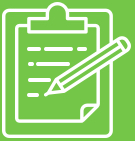Pet Dentist
Dentistry
80% of pets will suffer some form of dental problem in their lifetime
Animals’ teeth are extremely similar to yours. They have baby teeth that will fall out, they’re susceptible to tooth and gum disease, and most importantly, they should visit an expert in dental health annually.
It’s important that your pet receives a professional check-up at least once a year so that their teeth and gums can be examined. Animals are good at tolerating pain and unlike you, can’t always voice any problems they’re having with their mouths.
If your pet doesn’t receive regular oral care, plaque will begin to build on their teeth. This will lead to yellow-brown tartar and bad breath, and eventually attract other bacteria which can cause gum inflammation and tooth infections.
At Bay Vets our Veterinary Surgeons hold oral hygiene consultations. This means that your pet can have their teeth and gums examined thoroughly by a professional for any signs of infection. Should your furry friend then require treatment, we invest in the most modern equipment available (similar to what you would expect to see at your own dentist) for scaling, polishing and tooth removal.
As with most things, preventative care is the most effective approach. The following will help keep your pet’s mouth free from nasty infections:
Brushing teeth daily – The easiest way to get your pet used to having their teeth brushed is to start the process from a young age. You should always use specialist animal toothpaste; never human products.
A dry or partially dry diet – When an animal chews a hard biscuit it will act in an abrasive way against their teeth, removing any plaque build-up.
Dental treats – As well as removing plaque, dental treats can also prevent bad breath. It’s important to remember that overweight animals should not be given dental treats too often.
In between visits to see the Vet there are ways you can monitor your pet for oral problems. If possible, you should look inside your pet’s mouth daily. You should also keep an eye open for the following behaviour which could indicate your pet is suffering:
- Quiet or subdued behaviour
- Pawing at the mouth
- Not eating/difficulty eating/chewing on one side of the mouth
- Keen to eat (visiting the food bowl) but then not eating
- Excess salivation
- Face swelling (in severe cases)
If your pet demonstrates any of the symptoms above, book an appointment to see one of our team as soon as possible.
The Veterinary Surgeons at all four of our practices are always happy to give you advice when it comes to your pet’s dental hygiene. Whether you’d like information about which food to feed your animal, or how to clean their teeth, please don’t hesitate to ask.
For more information about animal oral care, or to book an appointment to see one of our Vets, call any of our surgeries to make an appointment.
80% of pets will suffer some form of dental problem in their lifetime
Animals’ teeth are extremely similar to yours. They have baby teeth that will fall out, they’re susceptible to tooth and gum disease, and most importantly, they should visit an expert in dental health annually.
It’s important that your pet receives a professional check-up at least once a year so that their teeth and gums can be examined. Animals are good at tolerating pain and unlike you, can’t always voice any problems they’re having with their mouths.
If your pet doesn’t receive regular oral care, plaque will begin to build on their teeth. This will lead to yellow-brown tartar and bad breath, and eventually attract other bacteria which can cause gum inflammation and tooth infections.
At Bay Vets our Veterinary Surgeons hold oral hygiene consultations. This means that your pet can have their teeth and gums examined thoroughly by a professional for any signs of infection. Should your furry friend then require treatment, we invest in the most modern equipment available (similar to what you would expect to see at your own dentist) for scaling, polishing and tooth removal.
As with most things, preventative care is the most effective approach. The following will help keep your pet’s mouth free from nasty infections:
Brushing teeth daily – The easiest way to get your pet used to having their teeth brushed is to start the process from a young age. You should always use specialist animal toothpaste; never human products.
A dry or partially dry diet – When an animal chews a hard biscuit it will act in an abrasive way against their teeth, removing any plaque build-up.
Dental treats – As well as removing plaque, dental treats can also prevent bad breath. It’s important to remember that overweight animals should not be given dental treats too often.
In between visits to see the Vet there are ways you can monitor your pet for oral problems. If possible, you should look inside your pet’s mouth daily. You should also keep an eye open for the following behaviour which could indicate your pet is suffering:
- Quiet or subdued behaviour
- Pawing at the mouth
- Not eating/difficulty eating/chewing on one side of the mouth
- Keen to eat (visiting the food bowl) but then not eating
- Excess salivation
- Face swelling (in severe cases)
If your pet demonstrates any of the symptoms above, book an appointment to see one of our team as soon as possible.
The Veterinary Surgeons at all four of our practice’s are always happy to give you advice when it comes to your pet’s dental hygiene. Whether you’d like information about which food to feed your animal, or how to clean their teeth, please don’t hesitate to ask.
For more information about animal oral care, or to book an appointment to see one of our Vet’s, call any of our surgeries to make an appointment.

